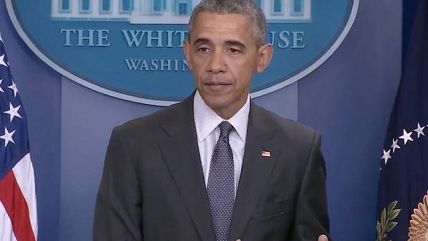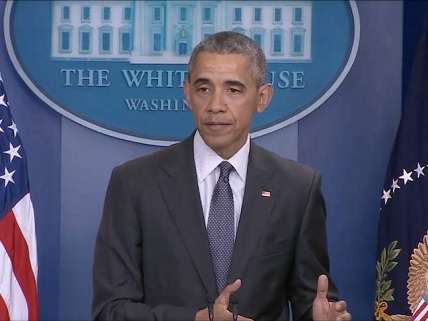President Obama Uses Panama Papers to Condemn Government Corruption Demand More Power for Government
Panama Papers illustrate how lucrative politics and government is, and shouldn't be a reason to make it even more so.


Let's recap: Yesterday, millions of documents related to a law firm that helps people set up off-shore companies were leaked. Those are the "Panama Papers." They identify the assets of 140 current and former politicians from around the world, as well as a few dozen private citizens.
Governments are up in arms, not because of the endemic corruption the ill-gotten wealth of the politicians in the Panama Papers represents but because, apparently, they didn't get enough of a cut. And there's little evidence additional tax enforcement authority would be used to catch corrupt politicians instead of merely curbing your freedom to move yourself or your assets across national borders.
Today, President Obama addressed the Panama Papers issue not by saying the U.S. would, say, re-examine its foreign aid spending to ensure U.S. dollars aren't fueling corruption abroad, but by using it as an excuse to call on Congress to pass laws to prevent Americans from moving their money out of the country as freely as they can now. He should call Republican presidential frontrunner Donald Trump, who has also railed against "inversions" as if money that Americans earn actually belongs to the U.S. government, and who has some novel ideas about limiting the outflow of money (specifically to Mexico) that maybe the president could build on.
Great Britain, too, has used the Panama Papers leak to push for more taxation authority. The billions in assets held by former government officials overseas represents how lucrative working in government and the power government has to take people's money can be. The use of this example of public corruption to demand government get even more power to confiscate people's assets and corrupt itself is beyond shameless, but, tragically, totally predictable.


Show Comments (47)